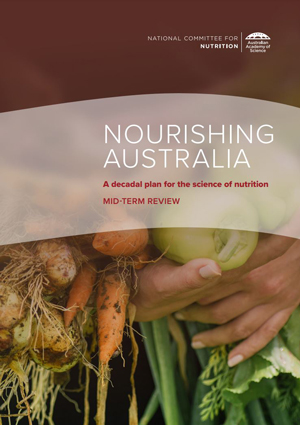
The mid-term review of the Australian Academy of Science’s National Committee for Nutrition's decadal plan has revealed critical insights into the evolving challenges and opportunities in nutrition science. From food security to sustainability and nutrition literacy, the review underscores the vital role of nutritional science in shaping Australia’s health, environmental resilience and economic future.
Nutrition science is essential for addressing some of Australia’s most pressing issues. As National Committee for Nutrition Chair Professor Margaret Allman-Farinell noted, “Nutrition science underpins areas of critical interest in securing future health, sustainability, food security and economic outcomes for Australians.”
The review highlights emerging issues such as the increasing prominence of food security and food processing, and the social determinants of nutrition literacy. These challenges are compounded by the lingering impacts of the COVID-19 pandemic, which disrupted food supply chains, increased cost-of-living pressures, and heightened inequalities in food access.
The review identifies food security and sustainability as priority areas requiring immediate attention. Communities across Australia, particularly Aboriginal and Torres Strait Islander peoples, face ongoing challenges in accessing affordable, nutritious food. This lack of access exacerbates health inequities, limiting opportunities for improved health outcomes.
Professor Allman-Farinell said there is a need to recognise the role Indigenous peoples and Indigenous foods can play in advancing nutrition science.
“We [also] needed to find any important omissions from the original plan. It was notable that while the plan was to realise health and environmental and economic opportunities to benefit all Australians, no voice had been given to Aboriginal and Torres Strait Island communities.”
National Committee for Nutrition member Dr Emma Beckett, who led the mid-term review steering committee, highlighted key areas for further research. Among them, the classification of processed foods remains an area of debate, requiring greater collaboration between public health experts and the food industry.
Dr Beckett acknowledged the complexities facing the field.
“As a field in constant flux with new technology, contexts and challenges, we must remain agile to maximise benefits to the Australian population,” she said.
The mid-term review steering committee found the plan’s original four pillars (societal determinants, nutrition mechanisms, precision and personalised nutrition, and education and research training) remain relevant.
The review envisions Australian nutrition science as a global leader in improving long-term health and wellbeing, delivering social, environmental and economic benefits. However, it warns that realising this vision will require coordinated efforts to address the resource and infrastructure challenges exposed during the COVID-19 pandemic.
“Nutrition science has the potential to shape the health and prosperity of future generations,” Dr Beckett said.
“To achieve this, the sector needs recognition of its crucial role in health, wellbeing and the economy, alongside the support required to drive impactful action.”
The mid-term review is a rallying call for action. It highlights the need for government support, cross-sector collaboration, and a renewed focus on education and research to equip Australians with the knowledge and resources needed for a healthier, more sustainable future.
Read the mid-term review of the Nourishing Australia decadal plan
Read Nourishing Australia: A decadal plan for the science of nutrition
© 2025 Australian Academy of Science